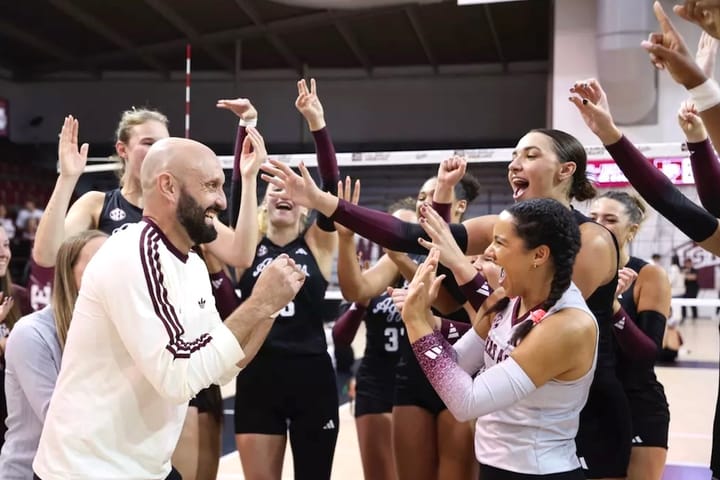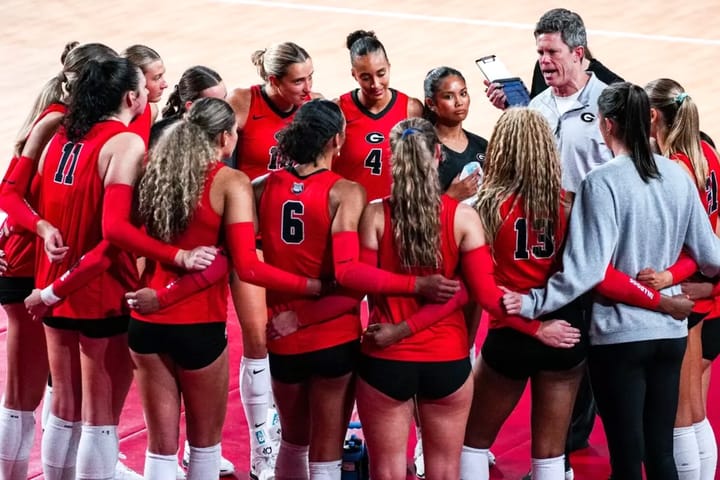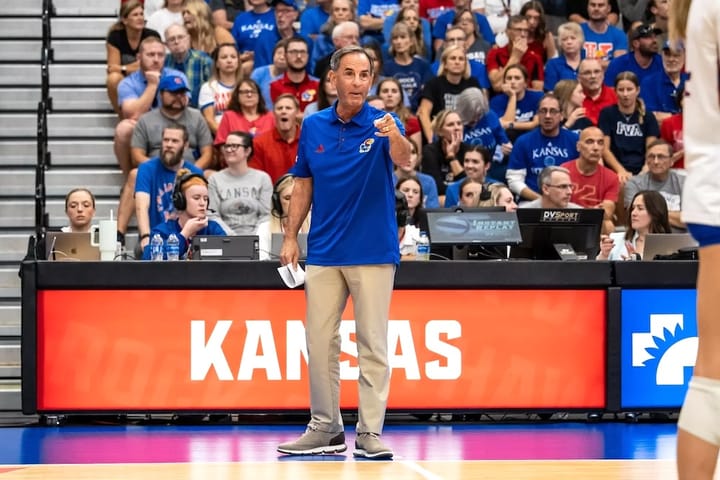101. Jason Watson: Play and be present.
Jason Watson is the head coach of the University of Arkansas women’s volleyball team. Under his leadership, the Razorbacks reached their first-ever Elite Eight in 2023.
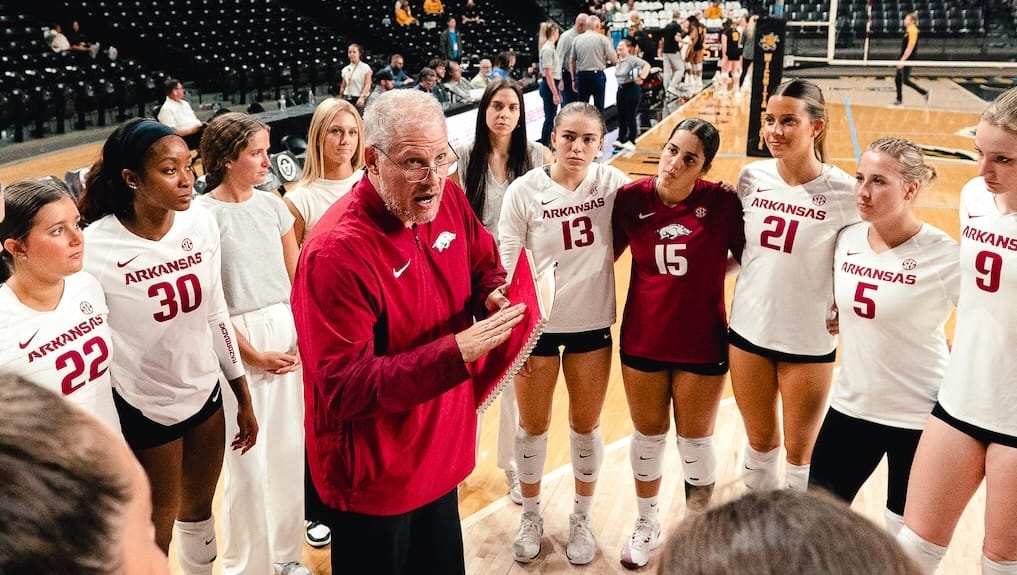
Jason Watson has been the head coach of Arkansas volleyball since 2016 and has taken the program to historic new heights.
In 2023, he led the Razorbacks to their first-ever NCAA Elite Eight with a 28–6 record, earning SEC Co-Coach of the Year and AVCA South Region Coach of the Year honors.
Under his leadership, Arkansas has made nine NCAA Tournament appearances, including a memorable Sweet 16 upset over Kentucky.
Before arriving in Fayetteville, coach Watson spent eight seasons at Arizona State where he led the Sun Devils to four NCAA Tournament appearances and helped the program reach its first top-25 ranking in a decade.
Before that, he was the head coach at BYU, where he compiled a 74–18 record over three seasons and was named Mountain West Conference Coach of the Year in 2005 after guiding the Cougars to a 25–4 finish and a conference title.
Key takeaways from this article include:
- Why to design practices that embrace variability instead of trying to control every possible outcome.
- The data-driven approach that focuses on coaching effectiveness rather than just player performance metrics.
- Why traditional scouting methods may be overwhelming players with too much irrelevant information.
- How to build trust through actions in the gym rather than formal office conversations.
- Avoiding traditional coaching hierarchies in practice — there are no starters vs. non-starters; everyone trains together.
- Why the future of volleyball lies in "cleaner" play and longer rallies that showcase true athleticism.
- The simple but powerful philosophy of "play and be present" that can transform athletic performance.
- And so much more...
Enter Jason...
Matias Raymaekers: Was there a moment when you decided to fully commit to coaching volleyball and seize the opportunity? What pushed you toward that decision? Was it just 'let's try it out,' or was it more like 'this is really what I want to do'?"
Jason Watson: My coaching journey actually began while I was in college. I played college volleyball in the United States at Brigham Young University, alongside what has turned out to be several really good coaches. Hugh McCutcheon was my roommate at BYU, and Kevin Hambly is now at Stanford.
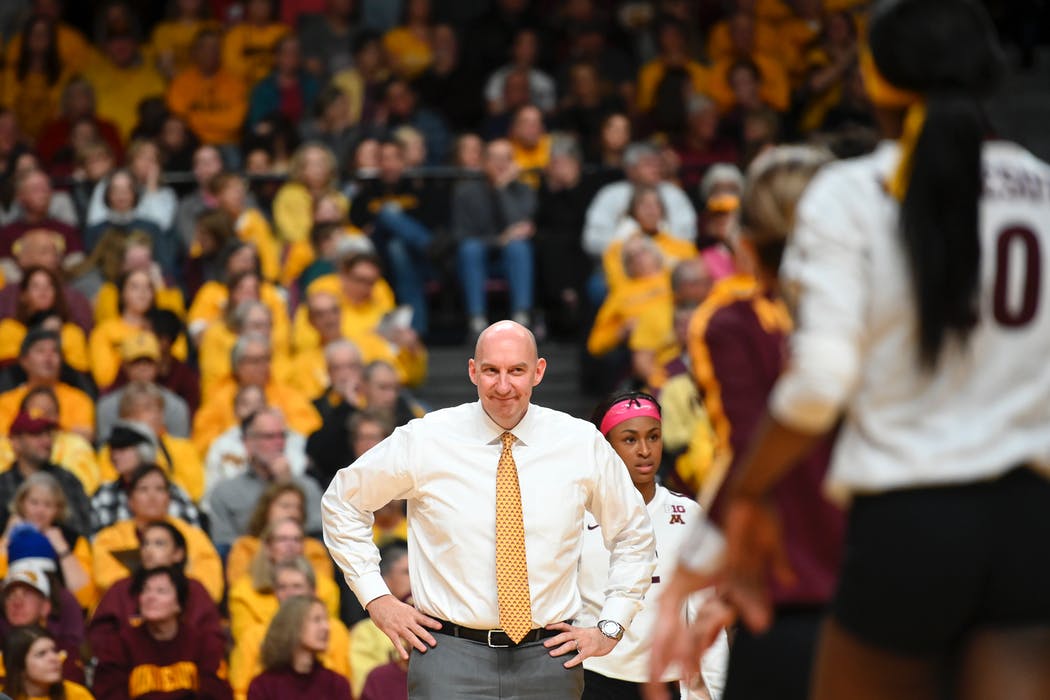
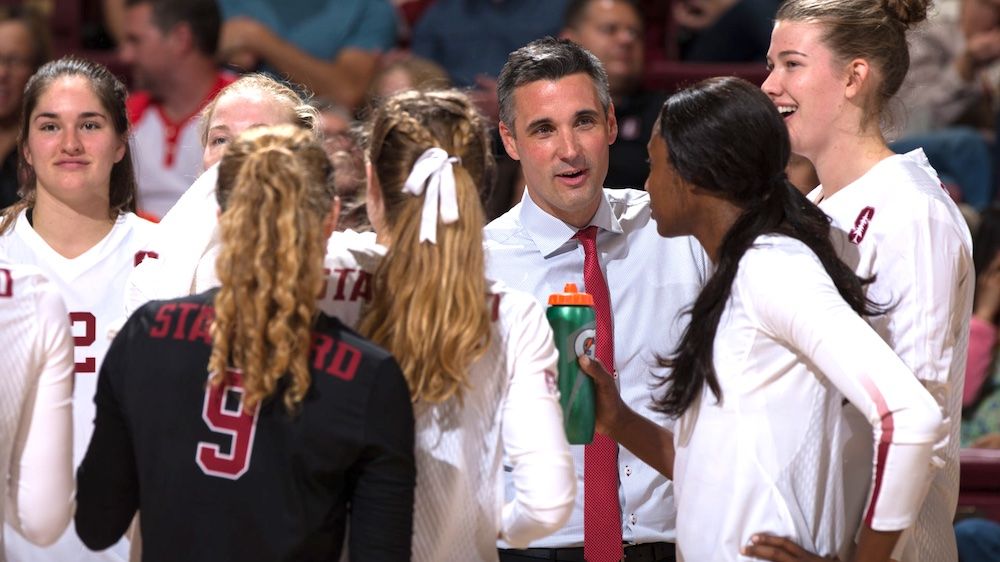
There's a long list of us who have come out of that program. We were all coached by Carl McGown.
In the summers, I would do these volleyball camps around Utah and Idaho, and into Wyoming. One summer, I got to work alongside Carl for seven or eight weeks. He got the top court, of course, and I got the bottom court, but it was great to hang out with him.
I think getting to be with him and seeing his passion for coaching... I mean, he coached high school kids the same way he coached college kids, the same way he coached Olympians. He just loved coaching.
So I think that's where coaching as a profession probably started for me, that was the genesis of it.
I grew up in Sydney, Australia, so coaching as a profession probably wasn't something you could realistically pursue back home. But once I graduated from BYU, I got my first coaching job at Montana State University up in Bozeman, Montana, and I've just moved around since then.
I would say those summers working "alongside Carl", which is probably generous to say it like that. I was watching Carl coach, and that was probably the start of this career.
Those were wonderful days for me.
Matias: What is the advice that you would give yourself as a starting coach? If you could talk again to your younger self, what would you want to tell him?
Jason Watson: I think there's a lot that I've learned over the years. I think coach education, especially college coach education, like the coach education you would get coming through colleges, is to create your coaching philosophy. And maybe there's some merit behind that, but it shouldn't be so dogmatic that you can't change.
So flexibility in looking and evaluating is important. I think you need some principles, you need a lens through which to look at things that are going on, the trends within the sport.
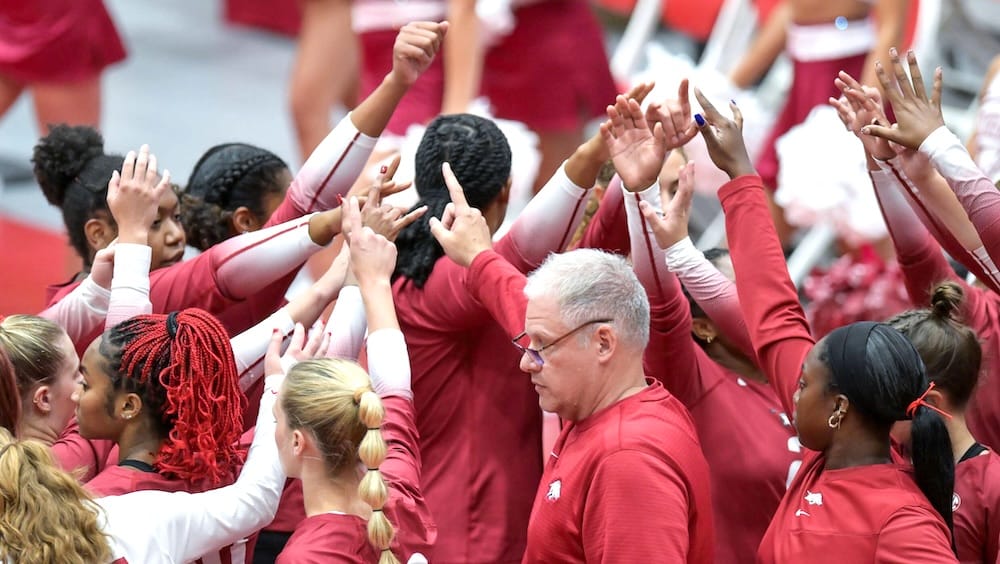
But certainly don't be so dismissive of them just because you haven't experienced them or done anything like that. I think that's pretty important too.
One of the most important things is that not everybody on your team is on your team for the same reasons. Every athlete is their own athlete and every athlete is their own person.
And that's really significant, I think. You're going to have athletes on your team that are going to be fully utilizing all of the resources that you have at your disposal. And then you have some that aren't.
And that's okay, you know, because everybody's got their role to play and everybody's their own person. So trying to meet people where they're at in their, I don't want to use the word "commitment," but where they're at in their space, is probably really significant. And I'm not sure I was even aware of that when I first started coaching.
Now I'm probably a little bit more empathetic and kind, and I think that's served me well.
Matias Raymaekers: What are some bad recommendations you still hear about coaching or training? Subjects where you think, it's 2025, why are we still saying this? Why are we still doing this?'"
Jason Watson: Let me try and put some guardrails around this answer.
I think our sport is wonderful. What makes our sport wonderful is the randomness that occurs within a very confined space. I think it makes it exciting, and I'm biased, of course, because I love volleyball.
What coaches try and do is control all of those variables that they think they see. And in doing so, and I'm copying Robert Gray, who's a wonderful researcher at Arizona State, in trying to impact or put some guardrails around variability, we decouple vision and action. And I think that, I don't understand why we're still doing that.
(In one of our next articles we're going to dive deeper into skill acquisition through the constraints led approach supported by Rob Gray and others. Be on the lookout for that one.)
And then we also try and prescribe "A plus B equals C" in an environment where A never equals B, but could end up equaling C. There's so many random things that go on. If we think about our sport, we celebrate as coaches and fans an athlete's ability to successfully navigate variability, right?
And we hold those athletes up as being elite in our sport. And yet we don't train our athletes to be able to go do that.
So that to me is still mind-boggling, that we haven't yet figured out that context rules the day and that our practices should probably reflect that context.
I would probably train you a little different than I would train 11-year-olds, but still I would be limiting the scope in which I would have them do an activity, while still trying to promote solutions to random environments. I think that's what we're trying to do.
I would be bored writing practices that were prescriptive in nature. So therefore I don't.
But that would be the one thing. I'm just a big advocate of trying to embrace variability within our practices to allow our athletes to draw the connection between what they view and how they respond.
And then as a coach, to be a conduit to help them be contextually aware and maybe even recognize some patterns. I think that's a pretty significant role that the coach has.
And then get away from this idea that we have to master fundamentals before we can play the game. That just also seems kind of silly to me.
Matias Raymaekers: Do you have a particular goal? Something that energizes you when you wake up in the morning? It could be a specific goal for this season or a broader goal for why you coach.
Jason Watson: I don't know if I have these outcome-based goals. I think it's pretty cliché, winning is the result of some things.
One of the things that's quite rewarding for me is to take a group of athletes that probably have been overlooked or, in the United States, maybe under-recruited, and put them into some systems and put them into an environment that we have in our gym and give them an opportunity to go be great that maybe they might not have had somewhere else.
But I imagine lots of coaches think that.
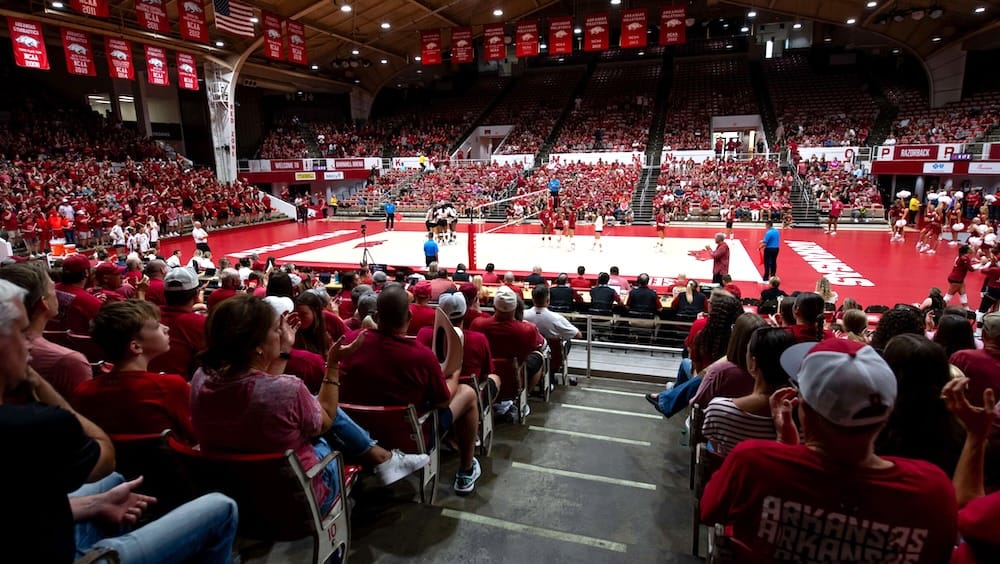
One of my goals is to ensure that my gym, my practice environment, is unique, based upon the answer that I gave before, is context-driven.
That's one of my big goals: to make sure that I'm always learning, always being better than I was the year before.
How can this drill be better? How can we work transition in a way that's occurring organically or ecologically rather than prescriptively? How do I get learning to occur in my gym without telling my athletes what it is that we're actually working on? That's fascinating to me and I have a goal to be better at that.
I think as a coach, we identify things that our program needs to upgrade. We use a lot of data to accumulate things. But then write practices that allow us to work on those types of things, but not necessarily sharing that stuff with our athletes.
We're just gonna get better at this thing because of the way we're writing practices. I think that's fascinating to me.
So that's a goal. I'm not there yet. I feel like I've got such a long way to go in that space, a ton to go, but I like where I'm heading and I like my practices. But I think those would be the goals.
And I'm confident that where we're heading is gonna allow us to have some success. I think my ultimate goal would be to coach as long as I choose to coach and not let somebody make a decision on my behalf when I no longer get to be a coach.
That'd be nice.
Matias Raymaekers: You mentioned data, which makes me think "approach". So let me ask: How do you prepare for games, and have you ever changed that approach?
And since you brought up data and the importance of the right context in your gym, has your coaching philosophy been continuously evolving, or was there a turning point where you started questioning everything? And how does data fit in there today?
Jason Watson: I think where I'm at today is it's just been a gradual evolution. I don't think there's been one defining moment that made me pivot.


